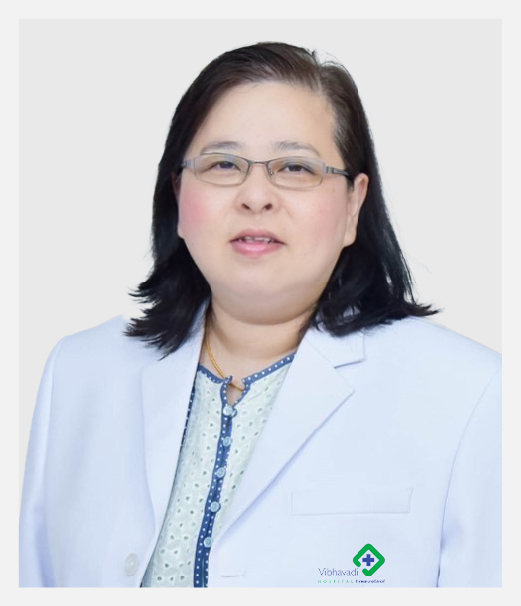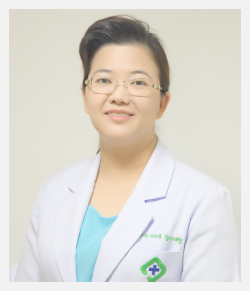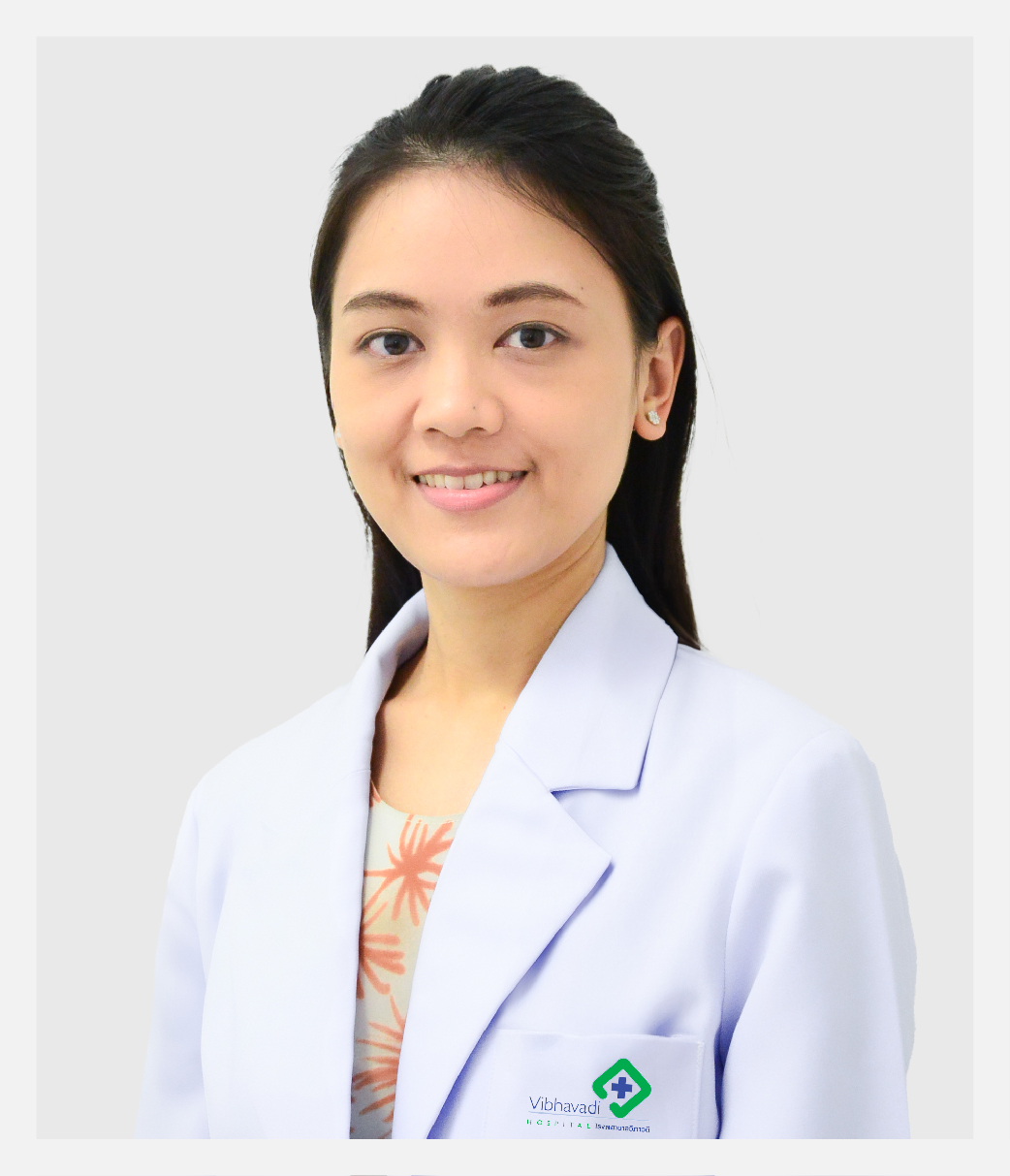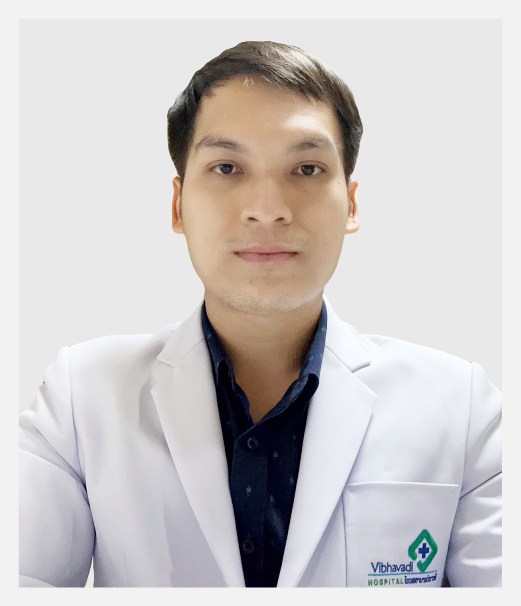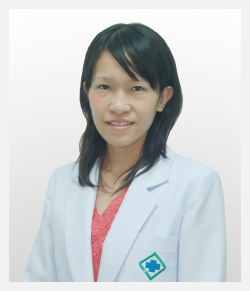Lung Infection (Pneumonia): Symptoms, Causes, Diagnosis & Tr
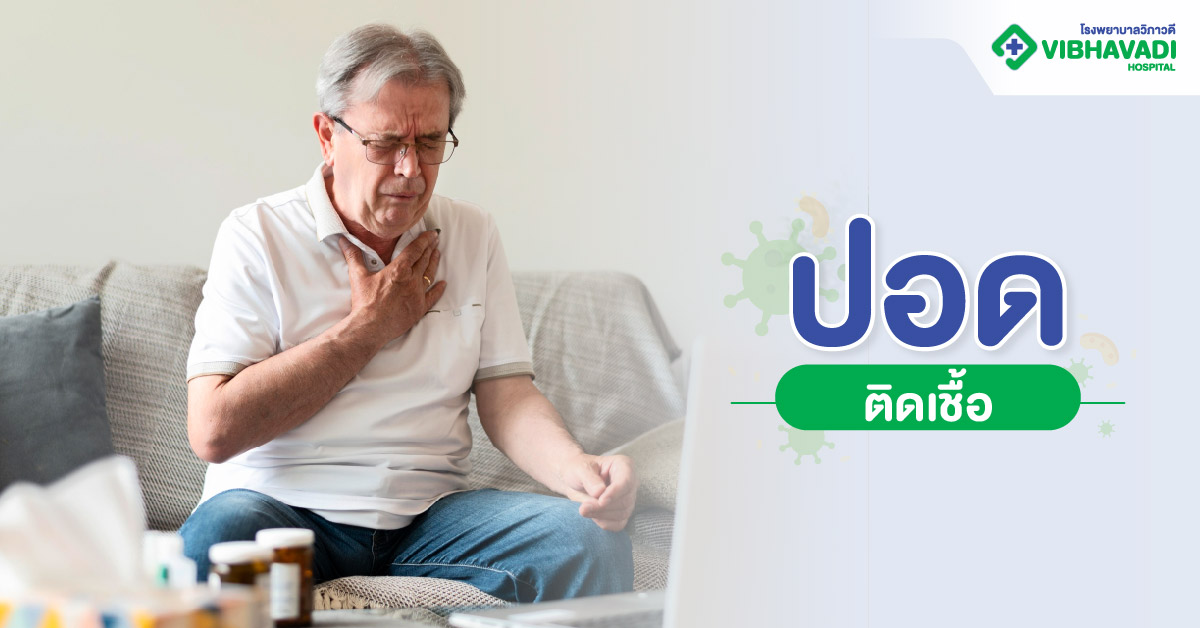
Overview
A lung infection, commonly referred to as pneumonia, is a potentially serious condition that occurs when the air sacs in one or both lungs become inflamed and filled with fluid or pus. This can be caused by bacteria, viruses, fungi, or other organisms. Lung infections can range in severity from mild to life-threatening, especially in infants, older adults, and those with weakened immune systems.
At Vibhavadi Hospital, our multidisciplinary team provides accurate diagnosis, effective treatment, and long-term management of pneumonia and related respiratory conditions.
What Causes Lung Infection?
1. Bacterial Pneumonia
-
Most common cause in adults.
-
Streptococcus pneumoniae is a leading culprit.
2. Viral Pneumonia
-
More common in children and can be caused by influenza, RSV, and coronaviruses.
3. Fungal Pneumonia
-
Rare, but more likely in people with compromised immune systems.
4. Aspiration Pneumonia
-
Occurs when food, liquid, or vomit is inhaled into the lungs.
Symptoms of Lung Infection
Symptoms can vary depending on the type and severity of infection. Common signs include:
-
Persistent cough (may produce green/yellow mucus)
-
Chest pain or discomfort during breathing or coughing
-
Shortness of breath
-
Fever and chills
-
Fatigue or weakness
-
Loss of appetite
-
Confusion (especially in older adults)
-
Rapid heartbeat
Note: In viral pneumonia, symptoms may resemble the flu and gradually worsen.
Who is at Risk?
Certain groups are more susceptible to developing lung infections:
-
Children under 5 years old
-
Adults over 65 years old
-
People with chronic conditions like asthma, COPD, diabetes, or heart disease
-
Immunocompromised individuals (e.g., HIV/AIDS, cancer patients)
-
Smokers
-
Hospitalized patients, especially those on ventilators
Diagnosis at Vibhavadi Hospital
At Vibhavadi Hospital, we use advanced diagnostic tools to ensure accurate identification of the infection and its cause.
1. Physical Examination
-
Listening for abnormal lung sounds such as crackles or wheezing.
2. Imaging Tests
-
Chest X-ray to detect lung inflammation or consolidation.
-
CT scan for more detailed imaging in complex cases.
3. Laboratory Tests
-
Blood tests to check for infection markers and oxygen levels.
-
Sputum analysis to identify the pathogen.
-
Pulse oximetry to measure blood oxygen saturation.
4. Special Tests
-
Bronchoscopy in severe or unclear cases to directly view the lungs.
Treatment Options
Treatment depends on the type, severity, and patient’s overall health.
1. Antibiotics
-
For bacterial infections. Early administration improves recovery outcomes.
2. Antiviral Medications
-
For cases caused by viruses like influenza or COVID-19.
3. Antifungal Medications
-
Used in rare cases of fungal pneumonia.
4. Supportive Care
-
Oxygen therapy
-
Intravenous (IV) fluids
-
Fever reducers and cough suppressants
-
Hospitalization for severe infections or complications
Important: Completing the full course of prescribed antibiotics is critical, even if symptoms improve early.
Recovery and Long-Term Management
-
Mild cases usually recover in 1–2 weeks.
-
Moderate to severe cases may take several weeks or even require follow-up imaging and care.
-
Pulmonary rehabilitation and vaccines (like influenza and pneumococcal vaccines) may be recommended to prevent recurrence.
Respiratory Care at Vibhavadi Hospital
Our Services Include:
-
Comprehensive diagnostic evaluations
-
Personalized treatment plans
-
24/7 inpatient care for acute respiratory infections
-
Pulmonary rehabilitation
-
Vaccination and prevention programs
Our Team
Vibhavadi Hospital is home to board-certified pulmonologists, infectious disease specialists, respiratory therapists, and a dedicated nursing team experienced in managing complex lung infections.
Prevention Tips
-
Get vaccinated (flu and pneumococcal vaccines)
-
Practice good hand hygiene
-
Avoid smoking and secondhand smoke
-
Manage chronic conditions effectively
-
Stay hydrated and well-rested during flu season
Insurance & Costs
-
Vibhavadi Hospital accepts a wide range of local and international insurance plans.
-
Patients can use:
-
Social Security (สิทธิประกันสังคม)
-
Government welfare schemes
-
Private insurance
-
Self-pay options with transparent pricing
-
-
Cost estimates vary by treatment and hospital stay; our billing team is available to assist with quotes.
Frequently Asked Questions (FAQ)
Q1: Is pneumonia contagious?
A: Some types, especially viral and bacterial pneumonia, can be spread through droplets from coughing or sneezing.
Q2: How long does it take to recover from a lung infection?
A: Mild cases recover in about 1–2 weeks. Severe cases may take several weeks and require additional follow-up care.
Q3: Can I take antibiotics without seeing a doctor?
A: No. Antibiotics should only be taken under medical supervision, and only if the infection is bacterial.
Q4: When should I see a doctor for a cough or fever?
A: Seek medical care if your symptoms persist more than a few days, worsen, or are accompanied by chest pain or breathing difficulty.
Q5: Is hospitalization always required for lung infections?
A: No. Many mild cases can be managed at home, but severe or high-risk cases may require hospital admission.
Testimonials
Proud to take care of you
